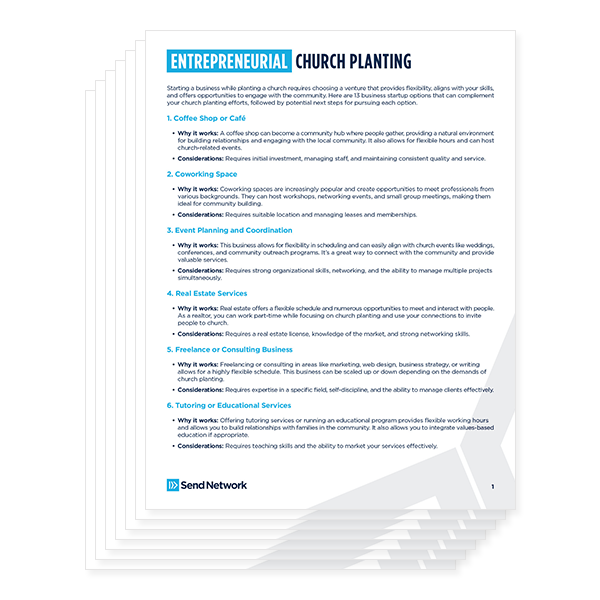Ninja strike teams
When I was a kid, we used to jump all over the playground whining “hiiiii-ya!” like feral cats and clumsily throwing our ridiculous kicks through the air at anyone stupid enough to get in our way. In at the time, I imagined myself like Bruce Lee, but I must have looked comical as my mind’s eye can remember it now. Like my childhood antics of kicking in an arc and calling it a roundhouse, our church planting methods are not as effective as the the apostles’.
After 11 years of planting, Paul was able to pen these words “From Jerusalem to Illyricum, I have finished the task that God set for me.” In other words, Paul had planted a church in every major city on the Mediterranean Islands, Macedonia and Asia Minor, much like our Send City Initiative in North America.
Imagine that; just eleven years, and Paul had to push on to Spain because he ran out of new frontiers.
Ever wonder how Paul went so fast?
Because he didn’t go alone.
Paul specialized in teams that planted together. He created a local network that moved around together as seen in Acts 20:4.
And we’re not talking one leader with a core team of underlings who specialize in doing church chores. We’re talking about a team of equally gifted, qualified and experienced church planters who banded together for impact, so that they could spread out quicker once the foundation was adequately laid. We’re talking planters like Titus, Silas, Barnabas and Epaphriditus. Most of us couldn’t keep up with Paul’s fellow workers, not to mention the big man himself, who ran circles around young men.
New measure of success
Contrast Paul’s team planting methodology with the modern approach to church planting. We recruit, train, fund and coach church planters believing that this will reverse the 70% fail rate. But we won’t really change the statistic until we stop sending them alone.
We tend to train them in the classroom and send them out into the field to try out their Kung fu. Why not spar together, getting out there and flinging some kicks, throwing some punches and actually doing some karate together?
Imagine sending out a group of planters together.
Instead of five churches launching this year in one city, why not use those five planters to launch together in one place? Paul usually moved on after raising up elders and depositing one leader (like Timothy, or Titus) to stay behind. After our new church plant is stable, we send out another church planter in about six months by breaking the team in half and recruiting more people to come with us. Then, six months later, we break that team in half.
Waiting another year, we create a new team out of that and send the next team of planters out who will also perform their own version of ecclesiastical cell mitosis and reproduce again.
Ironically, I was once taken aside by a short-sighted leader who chastised me for planting a network of churches out of my hub, rather than hording as many people as I could into one ginormous church. I told him that my measure of success was a network of churches that would continue to to multiply with the DNA. I’m always asking myself what the Apostle Paul would think of the churches I’d planted and the ministry that I performed. Scholars estimate that he planted anywhere from 12-24 churches in the eleven-year period of his active ministry. Imagine building a team of super planters who could rapidly deploy in any given city, who can take on various roles, who can increase and decrease according to their gifting and need of the plant and who are so kingdom-minded that they are able to move away so others can build upon the foundation they laid. (See 1 Corinthians 3:10.) Then, whenever there was need, they could interchange roles, relieve each one another when rest was required or team up for special ventures.
That’s what I would call success, and I’m pretty sure Paul would too.
The Fruit
Besides how successful such ventures would be, the benefits would of a brotherhood team planting strategy would be:
1. Stronger launches
2. Greater discipleship capacities
3. More than one type of leader using their various gifts (APEST roles)
4. Shared responsibilities of mission and management in the beginning when desperately needed
5. Local networks formed between multiple churches where leaders are known by one another and have served together to accomplish kingdom work
6. Kingdom work becoming the driving factor and replacing competition and empire building
7. Faster multiplication
8. Greater support
The difference in our church planting efforts that this would make would be the difference between us fighting on the playground and a super team up between Bruce Lee, Chuck Norris, Steven Seagal and Jackie Chan.
Published September 28, 2017




